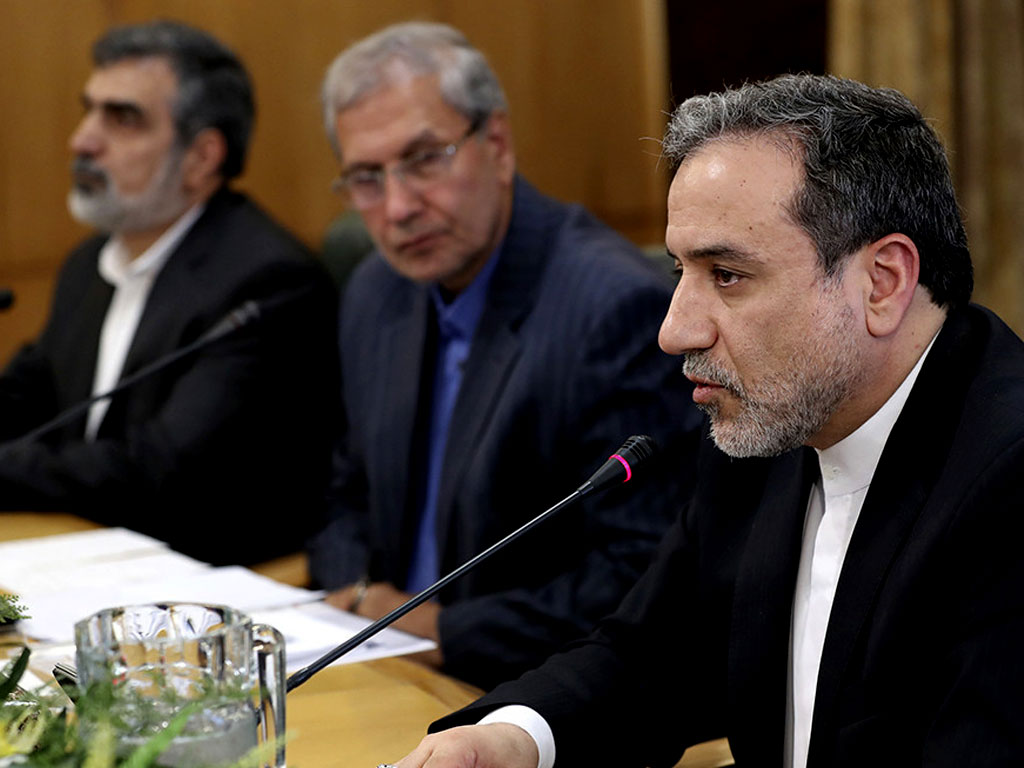Iran's stand on N-deal

The latest media reports suggest that Iran has withdrawn its 2015 nuclear deal commitment not to exceed the agreed uranium enrichment cap. It had forewarned other signatories to the deal that should they succumb under the American pressure and also join the anti-Iran sanctions regime it too would be justified to fully go back to its pre-deal position. Under the deal, Iran was allowed to enrich uranium only up to 3.67 percent concentration and to stockpile no more than 300 kilograms of the enriched material and to operate no more than 5,060 centrifuges. Another part of the deal required Iran to accumulate no more than 130 tonnes of heavy water and also redesign its heavy-water reactor at Arak. Iran was in full compliance with the deal, which was periodically certified by the United Nations nuclear watchdog IAEA. But other signatories, particularly the United States, were falling behind on their commitment to lift sanctions, as much under American pressure as influenced by their relations with other regional powers. Yet, in totality, the 2015 deal was alive and Iran had stuck to its commitments until Donald Trump arrived at the scene. It soon became clear that Iran as a potential nuclear power didn't sit well with his worldview. He withdrew from the nuclear deal last year, and also warned other signatories - China, France, Germany, Russia and the United Kingdom - against buying oil from Iran. Tehran's 60-day deadline forbidding them to follow the US example expired this past Sunday, and Iran resumed enriching uranium to about 5 percent concentration, which is just enough to run its nuclear power plant at Busher. There is, however, no indication that Iran will also enrich uranium to 20 percent it was doing for its research reactor prior to the 2015 nuclear deal. A country that can enrich uranium up to 20 percent can also do it up to 90-plus weapon-grade enrichment with much less effort. Therefore, the possibility cannot be ruled out that if anti-Iran sanctions become more stringent and hurtful the Islamic republic may go for weapon-grade enrichment option. Add to this the contingency of emerging geo-strategic scenario which tends to sharpen appetite for still more lethal weaponry. And then there is also the challenge to match Israel's nuclear-armed capability.
Any country which can produce nuclear energy for peaceful purposes can also make nuclear weapons. However out of about 40 nuclear energy-producers only nine have weaponised this capability - seemingly dictated as they were by their peculiar geo-strategic perspectives. And, as we in Pakistan know firsthand, the nuclear-weapon capability of states does act as antidote against wider conflicts. Rightly then there is an opinion also that Iran as a nuclear power would feel more confident of its security and help strengthen regional peace. But, so far there is no indication whatsoever that Iran wants to be a nuclear-weapon state. Also, President Trump would be grossly mistaken if he believes that economic sanctions against Iran would trigger a movement for regime change in Tehran. No doubt, stricter sanctions would make life unbearable for the common man, it would also popularize a call to reactivate the nuclear programme - and also trigger nuclear arms race in the region. However, a deeper study of Trump's mind and follow-up action suggests that the threat, and not action, is his weapon of choice. He flashes the sword but doesn't strike. After rudely walking out of his meeting with North Korea's leader at Hanoi he walked an extra mile to meet him at the DMZ between the two Koreas. And following the drone incident he ordered strike against Iran only to be withdrawn. As to how Pakistan should react to President Trump's love-hate tentacles the former ambassador to the United States, Ashraf Jehangir Qazi, has a word of advice for Prime Minister Imran Khan who visits Washington later this month. He should tell his host that "Pakistan knows its responsibilities as a nuclear weapons power and the US should deal with it on a non-discriminatory basis, which it has not."
























Comments
Comments are closed.